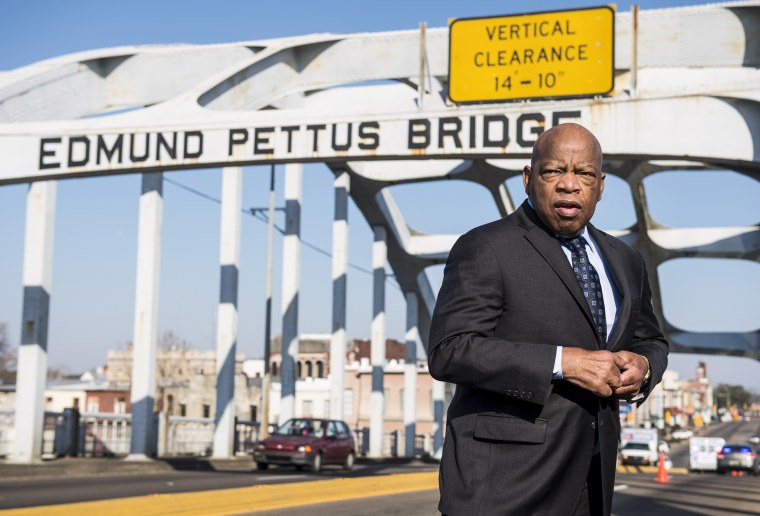The late civil rights leader and longtime Georgia Rep. John Lewis recalled the violence that he faced when leading a march for voting rights across the Edmund Pettus Bridge in an interview with Meet the Press in 2015.
That day — March 7, 1965 — was a moment that shook much of the nation when images of police beating peaceful civil rights marchers were broadcast on television news programs and became known as "Bloody Sunday." President Joe Biden traveled to Selma Sunday to commemorate the latest anniversary of the march (the 58th) and to renew his call to expand voting rights.
On the 50th anniversary of the march, Lewis described being beaten so badly that he suffered various injuries, including a fractured skull.
“We were kneeling," Lewis said, "we were knocked down. They started beating us with night sticks, tramping us with horses, releasing the tear gas. I was hit in the head by a state trooper with a night stick. I lost consciousness. 50 years later, I don’t recall how I made it back across that bridge to the little church that we had left from. Apparently, a group literally carried me back to the church,” Lewis said in an interview with Meet the Press moderator Chuck Todd in 2015.
Lewis would go on to win 18 elections as Georgia’s Fifth District Representative in the House. Asked whether he feels bitter about the violence he was met with as a peaceful protestor, Lewis referenced his nonviolent principles.
“I was not bitter then. I’m not bitter now,” Lewis said, “I grew in a movement to accept a way of love, the way of peace, the way of non-violence, the way of forgiveness, as a way of life, as a way of living.”
Lewis passed away in July 2020 after battling pancreatic cancer. He was the first African-American lawmaker to lie in state at the United States Capitol Rotunda.
